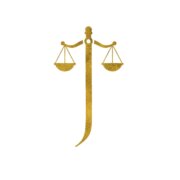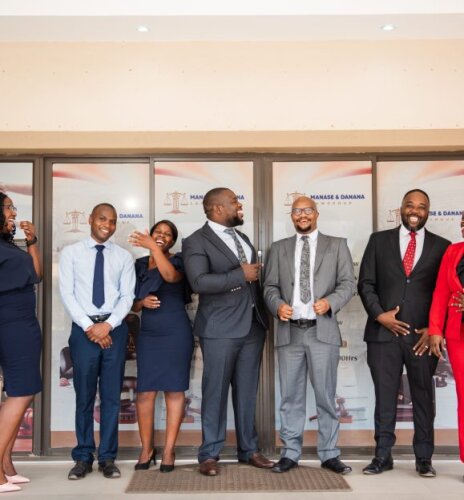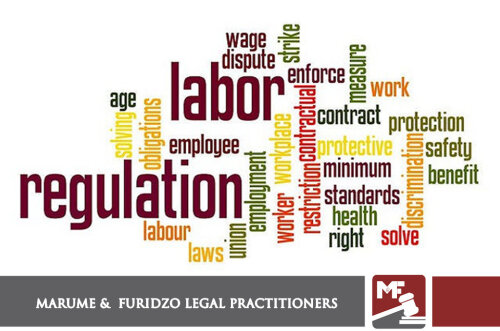Best Marriage Lawyers in Harare
Share your needs with us, get contacted by law firms.
Free. Takes 2 min.
Free Guide to Hiring a Family Lawyer
List of the best lawyers in Harare, Zimbabwe
About Marriage Law in Harare, Zimbabwe
Marriage in Harare, Zimbabwe, like the rest of the country, is governed primarily by the Marriage Act (Chapter 5:11) and the Customary Marriages Act (Chapter 5:07). These laws provide the legal frameworks for civil and customary marriages. Civil marriages are solemnized by magistrates or ministers of religion, while customary marriages cater to traditional and cultural practices. Both types of marriage have legal recognition and come with certain rights and obligations for spouses.
Why You May Need a Lawyer
Individuals may require legal assistance in marriage-related matters for various reasons. Some common situations include:
- Guidance in choosing between civil and customary marriage options.
- Drafting and reviewing prenuptial agreements.
- Navigating the legal requirements for marriage registration.
- Handling matters related to inheritance and property distribution between spouses.
- Assisting with divorce or separation processes.
- Mediation in marital disputes.
Local Laws Overview
The key aspects of marriage laws in Harare, Zimbabwe, include:
- Marriage Act: Regulates civil marriages, requiring parties to be of legal age (18 years), and mandates the registration of marriages for legal recognition.
- Customary Marriages Act: Pertains to traditional marriages, does not require registration for validity but may be registered for legal purposes.
- Inheritance: Matrimonial property is governed by principles under the Deceased Estates Succession Act, affecting inheritance rights.
- Divorce: Grounds for divorce include habitual criminality, incurable illness, and irretrievable breakdown of the marriage.
Frequently Asked Questions
What are the different types of marriages recognized in Zimbabwe?
Zimbabwe recognizes civil marriages (Marriage Act) and customary marriages (Customary Marriages Act).
What is the legal age for marriage in Zimbabwe?
The legal age for marriage in Zimbabwe is 18 years for both males and females.
Is registration of customary marriage necessary?
Registration of a customary marriage is not necessary for validity but is advisable for legal clarity, especially concerning property and inheritance.
Are prenuptial agreements recognized in Zimbabwe?
Yes, prenuptial agreements are recognized and can be useful in settling property and financial matters in advance.
What are the basic requirements for a civil marriage?
Basic requirements include consent from both parties, presence of a marriage officer, and registration of the marriage.
What constitutes grounds for divorce in Zimbabwe?
Common grounds for divorce include irretrievable breakdown of marriage, habitual criminality, and incurable illness.
How is marital property handled upon dissolution of a marriage?
Marital property distribution is guided by the principles of the Deceased Estates Succession Act and any prenuptial agreements in place.
What role do traditional customs play in a customary marriage?
Traditional customs play a significant role in customary marriages, including the negotiation and payment of lobola (bride price).
Can non-Zimbabweans marry in Zimbabwe?
Yes, non-Zimbabweans can marry in Zimbabwe, provided they meet the legal requirements set forth in the Marriage Act.
How can one convert a customary marriage to a civil marriage?
To convert a customary marriage to a civil marriage, the couple must undergo the civil marriage ceremony as outlined in the Marriage Act.
Additional Resources
For those seeking more information or legal advice in marriage matters, the following resources may be helpful:
- The Registrar General's Office: Responsible for marriage registration.
- The Law Society of Zimbabwe: Provides a directory of registered legal practitioners.
- Local legal aid organizations: Offer free or low-cost legal assistance to those in need.
Next Steps
If you need legal assistance in marriage matters, consider taking the following steps:
- Identify the specific legal issue or question you have regarding marriage.
- Gather all relevant documentation, such as marriage certificates, prenuptial agreements, and correspondence.
- Contact a qualified lawyer specializing in family or marriage law for professional advice and representation.
- Consider reaching out to community resources or legal aid organizations if you require financial assistance with legal fees.
Lawzana helps you find the best lawyers and law firms in Harare through a curated and pre-screened list of qualified legal professionals. Our platform offers rankings and detailed profiles of attorneys and law firms, allowing you to compare based on practice areas, including Marriage, experience, and client feedback.
Each profile includes a description of the firm's areas of practice, client reviews, team members and partners, year of establishment, spoken languages, office locations, contact information, social media presence, and any published articles or resources. Most firms on our platform speak English and are experienced in both local and international legal matters.
Get a quote from top-rated law firms in Harare, Zimbabwe — quickly, securely, and without unnecessary hassle.
Disclaimer:
The information provided on this page is for general informational purposes only and does not constitute legal advice. While we strive to ensure the accuracy and relevance of the content, legal information may change over time, and interpretations of the law can vary. You should always consult with a qualified legal professional for advice specific to your situation.
We disclaim all liability for actions taken or not taken based on the content of this page. If you believe any information is incorrect or outdated, please contact us, and we will review and update it where appropriate.















